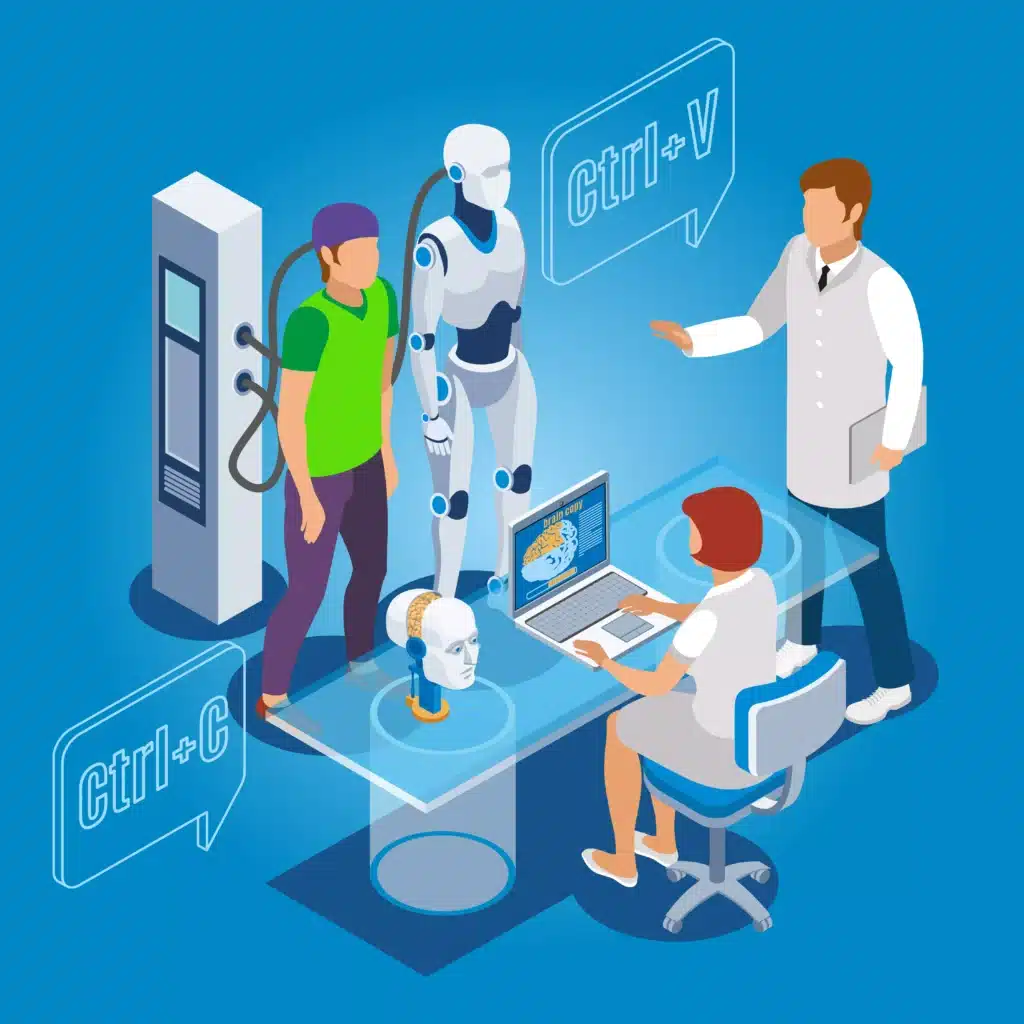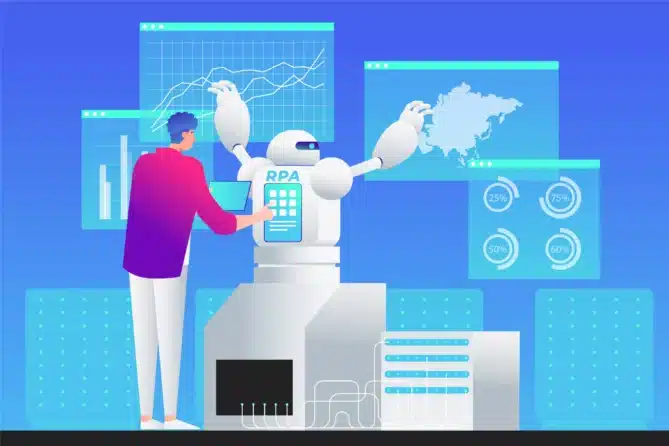By Ubaid Syed
Exploring the Power of Machine Learning in Modern Applications
Machine learning (ML) has become a cornerstone of modern technology, driving innovation across various industries. From healthcare to finance, retail to gaming, the ability of machines to learn from data and improve over time without being explicitly programmed is revolutionizing how we approach problem-solving. This article delves into the transformative power of machine learning, its applications, and its potential to reshape the future.
Understanding Machine Learning: A Brief Overview
Machine learning is a subset of artificial intelligence (AI) that focuses on developing algorithms that enable computers to learn from and make decisions based on data. Unlike traditional programming, where specific instructions are given to the machine, ML algorithms identify patterns, make predictions, and improve over time as they are exposed to more data. This ability to adapt and evolve is what makes machine learning such a powerful tool in today’s tech-driven world.
The modern applications of machine learning are vast and varied. In healthcare, ML algorithms analyze medical data to predict disease outbreaks or personalize treatment plans. In finance, they assess risks and detect fraudulent activities. So, in the realm of gaming, machine learning powers AI-driven characters and creates personalized gaming experiences. This broad applicability underscores the importance of understanding how machine learning works and how it can be leveraged for different needs.
Machine Learning in Custom Web Portal Development
In the field of custom web portal development, machine learning is playing an increasingly critical role. Custom web portals, designed to meet the specific needs of businesses and organizations, can be significantly enhanced by integrating ML algorithms. These algorithms can analyze user behavior, predict user needs, and optimize the portal’s performance based on real-time data.
For instance, in B2B web portal development, machine learning can be used to tailor content, recommend products, and streamline processes. By analyzing data from various interactions, the portal can offer personalized experiences to each user, enhancing satisfaction and engagement. This personalized approach is particularly valuable in B2B settings, where understanding the unique needs of each business partner is crucial for long-term success.
Moreover, machine learning can assist in automating tasks within the portal, such as customer support through chatbots or optimizing search results based on user preferences. These advancements not only improve the user experience but also reduce operational costs and increase efficiency, making ML a vital component in the development of modern web portals.

The Impact of Machine Learning on Application Development
Application development has been profoundly influenced by the integration of machine learning. In the past, app developers relied on static code to create modern applications with predefined functionalities. Today, ML allows modern applications to evolve and improve based on user interactions and data analysis.
One of the most significant impacts of machine learning in application development is its ability to enhance user personalization. By analyzing user data, apps can offer personalized content, recommendations, and even predictive functionalities that anticipate user needs. This level of personalization is becoming increasingly important in a world where users expect tailored experiences in every aspect of their digital lives.
Additionally, machine learning contributes to the security and efficiency of modern applications. For example, ML algorithms can detect unusual patterns in user behavior, identifying potential security threats or fraud in real-time. This proactive approach to security is essential in an era where cyber threats are becoming more sophisticated and frequent.
In the context of gaming, particularly in platforms like Roblox, where users engage in a dynamic and interactive environment, machine learning can enhance the experience by creating more responsive and intelligent in-game elements. For example, codes for Grand Kaizen or Kaizen codes Roblox can be integrated with ML algorithms to adapt the game environment to the player’s skill level, providing a more challenging and engaging experience.
Machine Learning in Gaming: The Kaizen Code
Gaming is one of the most exciting areas where machine learning is making a substantial impact. The integration of ML in gaming environments allows for the creation of more sophisticated AI characters. And personalized gameplay, and adaptive difficulty levels, all of which contribute to a richer gaming experience.
The concept of Kaizen, which means “continuous improvement,” aligns perfectly with the principles of machine learning. In gaming, particularly in environments like Roblox, codes for Grand Kaizen or Kaizen codes 2024 can be used to create game mechanics that adapt and improve as players progress. This approach not only keeps the game challenging but also ensures that it remains engaging and enjoyable over time.
Machine learning algorithms can analyze player behavior, learn from their actions. And adjust the game’s difficulty or introduce new challenges based on the player’s skill level. This dynamic adaptation makes the game more immersive and rewarding, as players are constantly faced with challenges that are tailored to their abilities.
Moreover, the use of machine learning in gaming is not limited to enhancing the player’s experience. It also plays a crucial role in game development. Where ML algorithms can assist in testing, bug detection, and even in creating new game content. This integration of ML in gaming underscores its potential to transform the industry by making games smarter, more adaptive, and ultimately more enjoyable for players.
The Future of Machine Learning in B2B Web Portal Development
As machine learning continues to evolve, its modern applications in B2B web portal development are expected to expand further. The ability of ML algorithms to analyze large volumes of data and derive actionable insights is invaluable in the B2B sector. Where understanding client needs and preferences is critical to success.
In the future, we can expect B2B web portals to become even more personalized and efficient. Machine learning will likely play a central role in automating more complex tasks. So, such as predictive analytics for sales and marketing, customer segmentation. And even in the development of new products and services based on market trends.
Additionally, the integration of machine learning with other advanced technologies. Such as blockchain and the Internet of Things (IoT), could lead to the creation of highly intelligent, interconnected B2B platforms. These platforms would not only facilitate seamless interactions between businesses but also provide deep insights that drive strategic decision-making.

Ethical Considerations and Challenges in Machine Learning
While the power of machine learning is undeniable, it is also important to consider the ethical implications and challenges associated with its use. One of the primary concerns is the potential for bias in ML algorithms. So, which can occur when the data used to train these algorithms is not representative of the broader population. This can lead to unfair or discriminatory outcomes, particularly in areas like hiring, lending, and law enforcement.
To mitigate these risks, developers and data scientists must prioritize fairness, transparency, and accountability in their work. This includes using diverse data sets, continuously monitoring and testing algorithms for bias. And being transparent about how decisions are made by ML systems.
Another challenge is the need for large amounts of data to train machine learning models effectively. In some cases, this data may be sensitive or private, raising concerns about privacy and security. Ensuring that data is collected, stored, and used in a way that respects user privacy is crucial to maintaining public trust in machine learning technologies.
The Role of Machine Learning in Driving Innovation
Machine learning is not just a tool for improving existing processes; it is also a driver of innovation. By enabling machines to learn and adapt, ML opens up new possibilities in fields ranging from healthcare to finance to entertainment. It allows businesses to create more intelligent products and services, solve complex problems, and make better-informed decisions.
In the world of business, particularly in custom web portal development and application development. So, machine learning is helping companies stay competitive by providing insights that were previously unattainable. Whether it’s through predictive analytics, customer segmentation, or personalized marketing. So, ML is giving businesses the tools they need to innovate and thrive in an increasingly digital world.
Conclusion:
Embracing the Power of Machine Learning The power of machine learning lies in its ability to learn from data, make predictions, and improve over time. Its modern applications are vast, ranging from enhancing gaming experiences with codes for Grand Kaizen to revolutionizing B2B web portal development and application development. As machine learning continues to evolve, it will undoubtedly play a central role in shaping the future of technology.







